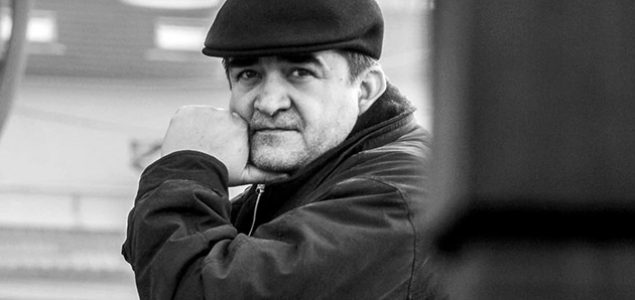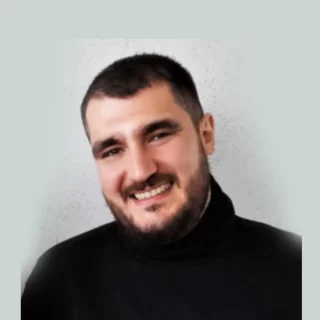Photo by: tacno.net
/ With Study: NAMING WAR CRIMES BY RIGHT NAME
Legal regulation prohibiting the negation, denial, minimizing, justification or approval of genocide, Holocaust, crimes against humanity or war crimes. Authors: Lejla Gačanica and Caroline Finkeldey. Publisher: forumZFD – TRIAL International, Sarajevo, December 2019.
Written by: Nerzuk Ćurak
Although the pandemic of the Corona virus has greatly reduced people’s interest in anything other than information related to this global blow to humanity, life cannot and should not stop. What would it mean for our lifestyle to be reduced to mere reproduction, to that reality in which we are simply born, growing, fading and dying, without feeling any other purpose and giving our lives undeniable meaning?
Reducing our world to a empire of necessity, to mere survival, it would no longer make sense to ask questions that go beyond bare life and raise the level of responsibility for the society we live in to a higher level of cognition than the current global triad: sick – dead – cured. But it makes sense to ask these questions, just as after all the great tragedies in history, man continued to ask and seek answers, not agreeing to the defeat intended for him by either plague and Spanish fever, whether Nazism, fascism or Stalinism.
In the context of reviewing this groundbreaking study, I would like to emphasize the importance in the public space of the post-conflict community to keep on top of the agenda the most important ethical, political and legal issues on which political and broadest social consensus has not been possible throughout the twenty-five post-Dayton years. It should come as no surprise that these are precisely the issues that confront memory cultures in an unmanageable state and a highly divided multiethnic society, with the a priori role of nationalist elites that the dead corners of the last war against Bosnia and Herzegovina are never illuminated. Unfortunately, they have the absolute public dominance of the viral narrative, which is an excellent line of defense for uncomfortable issues beyond the corona discourse, and which, directed by various levels of government in Bosnia and Herzegovina, can be declared as inappropriate, that this is not the time to talk about genocide, crimes and similarly.
That our life makes sense beyond the current quarantine (and it has, no matter how over-optimistic looks), this important study of two responsible researchers, published shortly before the Corona shock, that just in the days of home isolationism, this extremely documented legal and sociological study research confirmed the validity of dealing with genocide in the Corona times. Simply, we as humans must not stop addressing the most difficult ethical issues, because if we did, it would be a sign of our sinking into barbarism. And not to happen in these parts, many authors deserve to refuse to end the search for truth, regardless of the fact that the owners of dominant nationalist, tribalist and chauvinist levers and discourses are terrified from all these Sonja, Natasha, Judith, Stasha. Carolina, Lily, Štefica…
Lejla Gačanica and Caroline Finkeldey, with the logistical support of two important organizations (Forum ZFD and TRIAL International) that refuse to forget the mass killings of nations are already exploring, documenting, publishing and exhibiting responsible memory culture, publicly advocating victims’ rights and helping Balkan societies to cope with the dark places of their dishonor. They embarked on at not easy task: how, in a society, especially in BH society /societies, with a systematically based culture of denial, to offer, in a responsible, ethical, constructive and legally grounded manner, a new interpretative framework which would “drop” a sufficiently flexible approach among deluded nations and their organized elites that could ultimately lead to responsible individual, group, ethnic and national confrontation with the most serious crimes.
Although the focus of the two authors’ research was on the analysis of social conditions that enable /disable "the legal regulation of the prohibition of negation, denial, minimizing, justification or condemnation of genocide, Holocaust, crime against humanity or war crimes", there is no doubt that this is objectified factual research, supported by both theoretical literature and relevant legal sources and interviews with civil society actors and experts from different angles dealing with transitional justice, derived, I would say, the key belief of the study’s authors – that a complex topic must be approached with full responsibility, since responsibility generally does not dwell in debates about denial and negations.
This belief is generated from the utopian hope of the innocent and naïve that this responsibility of the text will also produce contextual responsibility, that is, the key negative indicator of legal regulation of the culture of denial – political willingness, will come and that the subjects of political will would begin to act constructively to produce the legal framework that will responsibly sanction the most serious crimes but also their systematic denial, without cheap party withdraw in the face of mass killings of nations that are documented so much that their denial is, besides tasteless, the dangerous and dangerous involvement of "their own people" in the transhistorical negation of what cannot be deny: war crime, crime against humanity, genocide, holocaust.
This seems exactly to me to be an important implicit message of this research – how to save nations from instrumentalizing their own political elites who, by rejecting the legal regulation of systemic denial of crime, including genocide, de facto interpolate entire communities into a spiral of negation, which from the point of view of the communities themselves is counterproductive and civilizational, culturally and psychologically shameful and dangerous. Thus, it is to be hoped that a consensus will emerge within the political class as soon as possible, transformed into the law of the sun, in the light of which everything becomes evident, even the dead, negationist corners of the last war.
The authors are, of course, aware that legal regulation not accompanied by the deepest social transformation is a half-way solution, and that full success would be only when, or not at all, hard legal regulation (because of the profound, righteous and creative transformation of the conflict that raised the community to civilization level in which it is a shame to deny genocide and the Holocaust) or, when the legal framework for regulating the negation of the most serious crimes would be the end of positive social transformation rather than the beginning.
From this analysis, based on all sources that have been crossed through the research process, it is objectively evident that in our society, the adoption of a neutral law as an "abstract, impersonal principle" governing the culture of denial is still not possible and, if it were possible, would be probably the set of articles of the Penal Code (or a separate law) that would simply manifest as an embodied impossibility of possibility.
That is why this research (which, in addition to all these values, has an excellent, meaningful comparative appendix on the regulation of denial of the most serious crimes in other countries) should be used to spread debate, intensify conversations between confronting narratives, multiply discussions and between the most opposing fractions of opinions in order to a new social construct is being obtained, a new social network in which it will finally be possible for the debate on genocide and other gravest crimes to reach its full potential in a conflicting social field and reach all ethno-national communities and all stratification levels of a tense post-genocidal society. Finally, only on the wings of such widespread dissemination would legal regulation be a lavish endorsement of the changed ethos of our society.
Like legal norms, without any prior work of responsible institutions and public services on the broadest social transformation and education of citizenship, failed to regulate smoking ban in our negligent culture, so, I fear, the laws of denial of crime, without a just social mark, would only be pure a legal illusion. It is therefore of the utmost importance that such and similar research be intensified in such a way as to elevate the authority of scientific truth to the pedestal of final acceptance by politics and transformation of this new, transformed civilization will of BH. societies into a law that will be respected as the highest civilizational norm, as the sunshine proof that a legal fight against a culture of denial is also possible.
Nerzuk Ćurak is a Doctor of Political Science, Professor at the Faculty of Political Science, University of Sarajevo, essayist, scientific publicist, journalist, columnist, editor, public intellectual, peace activist … He is the author of several books. His two most recent books are: Discussion on Peace and Violence. (Geo) politics of war – (Geo) politics of peace – Peace Studies (Buybook, Sarajevo-Zagreb, 2016) and From Eros to Polemos. A Book of Conversations (Buybook, Sarajevo-Zagreb, 2018)




